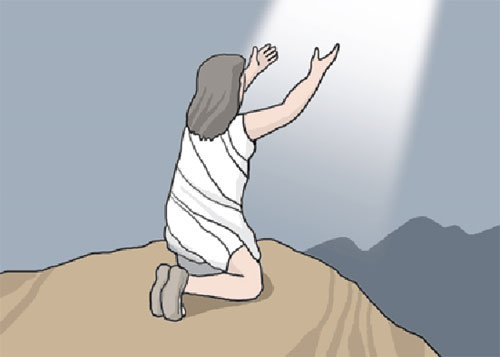Tears from 4,000 years ago
Tears from 4,000 years ago
Posted March. 20, 2019 07:56,
Updated March. 20, 2019 07:56

Samuel Noah Kramer (1897–1990), a world-renowned expert in Sumerian history and Sumerian language, found two clay fragments in 1952 at the Istanbul Museum of the Ancient Orient in Turkey and made a copy. When he took them to the U.S. and compared them with the four clay fragments at the University Museum, University of Pennsylvania, something astonishing happened. It turned out that they were a part of each other. The once a single piece of work was scattered during the process of excavating artifacts.
When deciphering the clay tablet after combining the all fragments, the Assyriologist found that it was an allegory on the agony of human beings. Like the Book of Job under the Old Testament, which puts the agony of human at the center, the 4,000-year-old clay tablet was delivering the story of agony. There was a man who was suffering from unfathomable misfortune. People drove his words into lies, conspired against him, and even his friends were not honest to him. Furthermore, when everyone else was living affluently, only his family did not have anything to eat. He was only left with poverty, disease and pain. Nobody helped him. He had no one to moan about his misfortune but the Lord. “Lord, how long are you going to neglect me and unprotected,” sad the unfortunate man in pain and tears. “The wise men say that no child is born without a sin and there is no young person without a sin even from a long time ago. Is this really true? Is this why you are giving me such pain?”
The Lord was softened by the pain, tears, and the words coming out of the miserable man. The deeply moved Lord sent an angel to change his pain into happiness and protect him. His disease was cured and poverty went away. According to Dr. Kramer, this story had been written more than 1,000 years before the Story of Job and the protagonist is the first Job of mankind. The cuneiform characters of the clay tablet deliver the same story of Job to us. Human beings are always devastated in front of agony and misfortune that has no reason and seems even unjust. The tears are a form of prayer towards the absolute being of the unknown. Thousands of years have passed by yet this appears to be the same even today.
Headline News
- Med professors announce intention to leave hospitals starting Thursday
- Bridge honoring Sgt. Moon Jae-sik unveiled in Pennsylvania
- Chief of Staff Chung tells presidential secretaries to stay away from politics
- US FTC bans noncompete agreements
- N. Korea launches cyberattacks on S. Korea's defense companies







